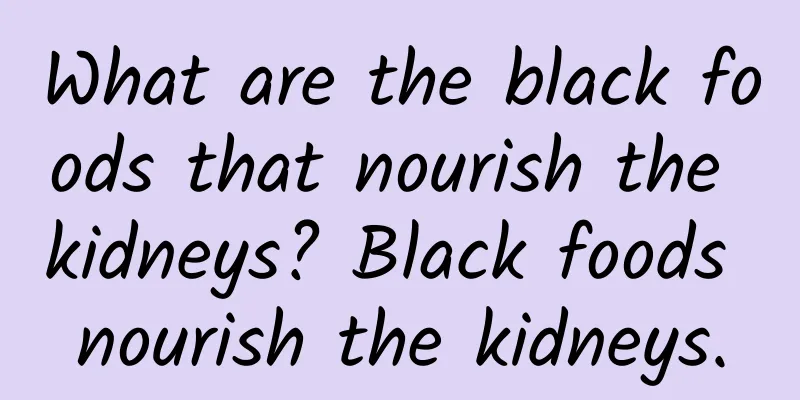What does prostate hyperplasia mean?

|
Prostatic hyperplasia refers to a disease of the male genital area, which is mainly caused by long-term sitting or chronic inflammation. Suffering from prostatic hyperplasia will not only easily lead to urinary urgency or difficulty urinating, but also easily affect normal sexual life. Prostatic hyperplasia needs to be diagnosed and treated as soon as possible. What does prostate hyperplasia mean? Causes There are many studies on the pathogenesis of benign prostatic hyperplasia, but the cause has not been clarified yet. It may be due to the disruption of the balance between epithelial and stromal cell proliferation and cell apoptosis, and other related factors: androgen and its interaction with estrogen, the interaction between prostatic stroma and glandular epithelial cells, growth factors, inflammatory cells, neurotransmitters and genetic factors. It is currently known that benign prostatic hyperplasia must have two conditions: functional testicles and aging. In recent years, it has also been noted that smoking, obesity and alcoholism, family history, race and geographical environment have a relationship with the occurrence of BPH. Clinical manifestations In the early stage of benign prostatic hyperplasia, the symptoms are atypical due to compensation. As the lower urinary tract obstruction worsens, the symptoms gradually become more obvious. The clinical symptoms include symptoms during the urination period, symptoms during the urination period, and symptoms after urination. Due to the slow progression of the disease, it is difficult to determine the onset time. 1. Symptoms of urinary retention The main symptoms of this stage include frequent urination, urgency, urinary incontinence and increased nocturia. (1) Frequent urination and increased nocturia Frequent urination is an early symptom. The frequency of nocturia increases, but the amount of urine each time is small. After the bladder detrusor fails to compensate, chronic urinary retention occurs, the effective capacity of the bladder is reduced, and the interval between urination is shortened. If accompanied by bladder stones or infection, the frequent urination becomes more obvious and accompanied by pain during urination. (2) Urinary urgency and urinary incontinence When there is lower urinary tract obstruction, 50% to 80% of patients experience urinary urgency or urge incontinence. 2. Symptoms during urination Symptoms of this stage include hesitancy, difficulty urinating, and intermittent urination. As the gland enlarges, mechanical obstruction worsens, urination becomes more difficult, and the degree of lower urinary tract obstruction is not proportional to the size of the gland. Due to increased urethral resistance, the patient's urination starts late, urination time is prolonged, the range is not far, and the urine stream is thin and weak. The urine is forked, and there is a feeling of incomplete urination. If the obstruction worsens, the patient must increase abdominal pressure to help urination. Breathing causes abdominal pressure to increase or decrease, resulting in interrupted and dripping urine flow. 3. Post-urination symptoms Symptoms of this stage include incomplete urination and dribbling after urination. Incomplete urination and increased residual urine: Residual urine is the result of bladder detrusor failure to compensate. When the residual urine volume is large, the bladder is over-inflated and the pressure is very high, which is higher than the urethral resistance, urine overflows from the urethra by itself, which is called overflow incontinence. Some patients usually do not have much residual urine, but when they are cold, drink alcohol, hold urine, take medicine or have other reasons that cause sympathetic nerve excitement, acute urinary retention may suddenly occur. The symptoms of urinary retention in patients may be better or worse. Some patients may have acute urinary retention as the first symptom. 4. Other symptoms (1) Hematuria The capillaries on the prostate mucosa are congested and the small blood vessels are dilated. They are pulled by the enlarged gland or rubbed against the bladder. When the bladder contracts, it can cause microscopic or macroscopic hematuria. It is one of the common causes of hematuria in elderly men. Cystoscopy, metal catheterization, and sudden bladder decompression during acute urinary retention catheterization can easily cause severe hematuria. (2) Urinary tract infection Urinary retention often leads to urinary tract infection, which may cause symptoms such as urinary urgency, frequent urination, and difficulty urinating, accompanied by urinary pain. When secondary upper urinary tract infection occurs, fever, back pain, and systemic poisoning symptoms may occur. Although patients usually have no symptoms of urinary tract infection, there may be more white blood cells in the urine, or bacterial growth in urine culture, and treatment should be given before surgery. (3) Bladder stones cause lower urinary tract obstruction, especially when there is residual urine. The urine stays in the bladder for a long time and may gradually form stones. When accompanied by bladder stones, symptoms such as interrupted urine flow, pain at the end of urination, and the need to change body position to urinate may occur. (4) Kidney dysfunction is mostly caused by ureteral reflux and hydronephrosis. The main complaints of patients when they seek medical treatment are loss of appetite, anemia, high blood pressure, or drowsiness and slow consciousness. Therefore, for elderly men with unexplained symptoms of renal insufficiency, benign prostatic hyperplasia should be ruled out first. (5) Long-term lower urinary tract obstruction may cause lower abdominal mass due to bladder diverticulum filling or upper abdominal mass due to hydronephrosis. Long-term reliance on increased abdominal pressure to assist urination may cause hernia, hemorrhoids and rectal prolapse. |
<<: Can rapeseed pollen cure prostate problems?
>>: Is minimally invasive prostate surgery safe?
Recommend
Why is my semen so thin and watery?
In life, many people have encountered many proble...
Essential "guardian" elements in men's bodies
Boron: A treasure for the prostate Men who consum...
Why are we prone to allergies? How to prevent allergies
In real life, some people often have allergic sym...
How to masturbate the most
For adolescent boys, masturbation should be done ...
How do boys get fat?
Although in modern society, everyone is pursuing ...
What causes muscle twitching?
Many men say that their muscles twitch after exer...
How can men improve their sleep quality?
In daily life, many people have experienced insom...
What is the cause of redness, swelling and pain in the glans penis?
The redness, swelling and pain of the glans penis...
What are the methods for male prostate prevention?
Men's prostate often has some problems. If no...
What should I do if my turtle's scalp is broken and bleeding?
The glans is the male reproductive organ. Because...
How to pickle salted garlic, how to make delicious salted garlic
Garlic is a food with good antibacterial and anti...
Men rub three times to show their masculinity
Core Tips: Rubbing your face when you are tired w...
How to tell if sperm quality is good?
In fact, having a baby is a science. If the quali...
What are the dangers of prostatitis?
Nowadays, there are more and more male diseases i...
How to measure body fat and how to calculate body fat percentage in daily life
Body fat percentage is an important indicator of ...









